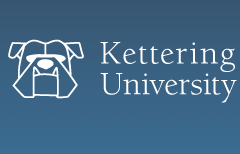Teaching and Assessment Experiences of an Undergraduate Mechanical Engineering Design Course
Document Type
Conference Proceeding
Publication Date
2010
Publication Title
ASEE Annual Conference and Exposition Conference Proceedings
Conference Name
ASEE Annual Conference and Exposition
Abstract
Teaching and learning a fundamental core course such as Mechanical Engineering Design (or Machine Design) continues to be fun but a challenging task for many instructors, as well as for students. It certainly helps if an instructor has both hands on and/or professional consulting experience to share their rich and real-life knowledge to keep the students engaged in a classroom and to add value to the course. A typical Machine Design course truly integrates the core concepts taught in Linear Algebra, Statics and Mechanics of Materials courses to a great extent that no other course sequence exists in an undergraduate engineering curriculum, the only exception could be a Capstone Design course that usually requires many other pre-requisites in order to give a truly multi-disciplinary design experience. Use of some of the math and/or CAE tools as a part of a machine design course is believed to help performing parametric studies and to evolve alternative designs. Due to its nature, students should be taught to appreciate open-endedness and ambiguity of design requirements that are inherent in a typical machine design course. These are some of the attributes for innovation and creativity which help them develop a mindset for possible entrepreneurship. It takes a mechanical engineering graduate a long way to practice professional engineering if he/she develops strong engineering and problems solving skills with a different mindset. Machine Design is a typical course that gives this experience. Based on many years of teaching this course, in this paper, the authors present the assessment of course learning objectives (CLOs) and how they are linked to direct assessment of homework, class work, exams and design project outcomes. The CLOs are also mapped with the ABET Program Outcomes. This being a core course it is offered every quarter at Kettering University. The results are presented in the form of charts and tables. The paper concludes with some observations and recommendations as a part of continuous improvement strategy.
Rights Statement
© American Society for Engineering Education, 2010.
Recommended Citation
Echempati, Raghu and Dippery, Richard E., "Teaching and Assessment Experiences of an Undergraduate Mechanical Engineering Design Course" (2010). Mechanical Engineering Presentations And Conference Materials. 31.
https://digitalcommons.kettering.edu/mech_eng_conference/31


Comments
ISSN: 2153-5965